Go back
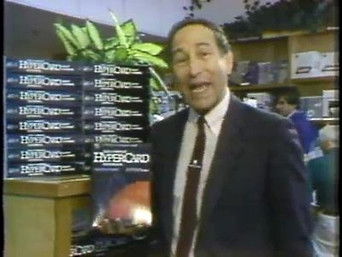
Hypercard
Episode number: 1
Overview: An introduction to Apple's Hypercard. Demonstrations include Hypercard 1.0, Complete Car Cost Guide, Focal Point, Laserstacks, and National Galllery of Art. https://archive.org/details/CC501_hypercard
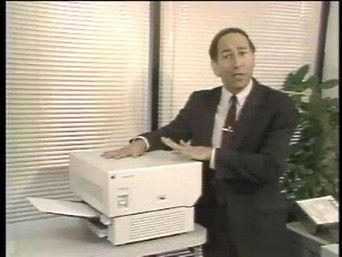
Laser Printers
Episode number: 2
Overview: Remember daisy wheel printers? Dot matrix printers? Ribbon printers? They largely disappeared when the early laser printers were introduced. The first laser printers sold for more than $100,000. So it was big news when Canon came out in 1979 with a laser printer for $10,000. The first Apple laserwriter sold for $6,798 in 1987. This show looks at several early printer options including the Apple LaserWriter Plus, the Hewlett Packard LaserJet II, and the Okidata LaserLine 6. Also featured is a demonstration of one of the first desktop publishing programs to take advantage of laser printers, Ready Set Go 4.0 from Letraset. https://archive.org/details/laserprinter
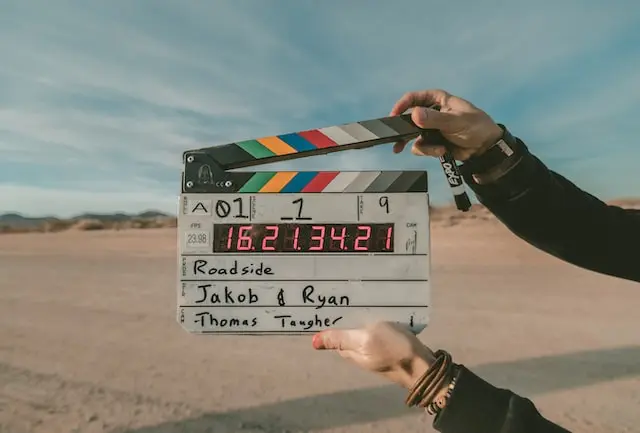
Comdex Special (1987)
Episode number: 3
Overview: Highlights from the annual Comdex trade show in Las Vegas. Originally broadcast in 1987. https://archive.org/details/comdex_2
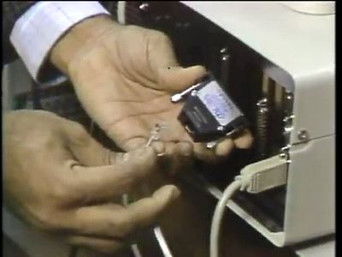
Local Area Networks: Part 1 - IBM Compatibles
Episode number: 4
Overview: It didn't take long after the introduction of personal computers for users to want to network their PCs and share files and peripherals. This program looks at some early networking technologies incuding Grapevine, EasyLAN, 3Com, and Novell. http://www.archive.org/details/DesktopP1986
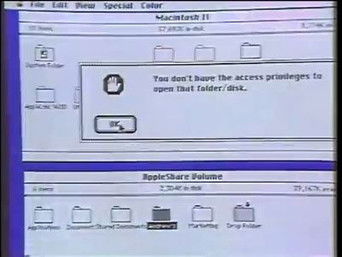
Local Area Networks: Part 2 - Apple
Episode number: 5
Overview: A look at early attempts to network personal computers. This show focuses on Apple products including Appletalk, AppleShare FileServer, and MacLink. Also includes a look at Apple networks in use at Arthur Young & Company and at Stanford University. http://www.archive.org/details/networks1
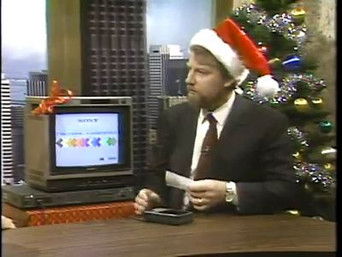
Consumer's Buying Guide (1987)
Episode number: 6
Overview: The annual holiday buyer's guide for computer products featuring geeky recommendations for cool new gadgets from George Morrow, Wendy Woods, Paul Schindler, Gary Kildall, and Stewart Cheifet. Products reviewed include Toshiba T1000 Laptop, Touchbase Worldport 1200 Modem, Diconix 150 Portable Printer, LapLink, Ashton-Tate's Byline, Higgins, Complete Hand Scanner, Worlds of Wonder Julie Doll, Microsoft Bookshelf, Broderbund's Science Tool Kit, Complete PC Fax Board, Mr. Game Show, Ask God, Macromind Videoworks, and Apple's Hypercard.
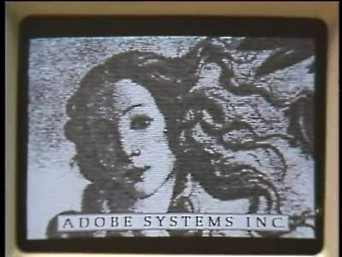
Macintosh Business Software
Episode number: 7
Overview: Most users thought of the PC as the business computer and the Macintosh as the creative computer. But you could also run your business on a Mac. This program looks at several business applications designed for the Macintosh computer. Demonstrations include Multi-Finder, 4th Dimension, the Macintosh Business Letter, Write Now for Mac, Trapeze, and VideoWorks. https://archive.org/details/macbussoftwa
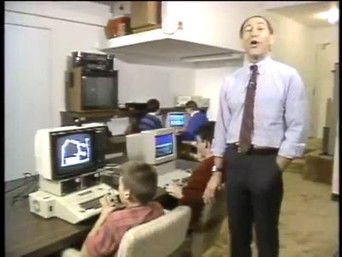
Computer Games: Part 1
Episode number: 8
Overview: A look at early computer games. Featured are Earl Weaver Baseball, Ferrari Formula One, Tower of Myraglen, and Shanghai. Includes a visit to Electronic Arts customer support department and an interview with author and game designer Douglas Adams. https://archive.org/details/games1
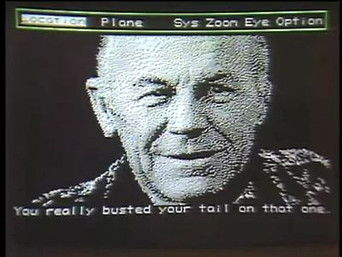
Computer Games: Part 2
Episode number: 9
Overview: A look at some of the leading computer games in the late 1980's. Demonstrations include Chuck Yeager's Advanced Flight Trainer, Accolade's Mean 18 golf game, Apache Strike, Beyond Dark Castle, The Other Side, and Strategic Conquest. Also features an early look at CompuServe's on line game playing. https://archive.org/details/games2
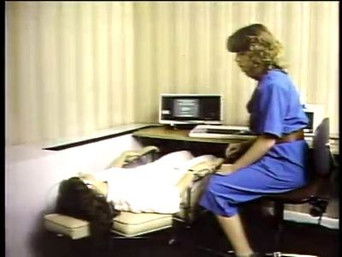
Decision Support Software
Episode number: 10
Overview: In the heyday of artificial intelligence and expert systems, it was thought that computers could make human like decisions. This program looks at several early examples. Products demonstrated include Decision Aide from Kepner-Tregoe, AT RISK! from Palisade, Super Tree from Strategic Decisions, and Teknowledge. https://archive.org/details/decisionsoft
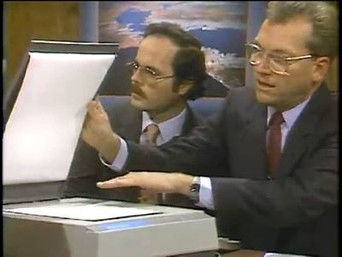
Imaging Software
Episode number: 11
Overview: A look at the use of personal computers to digitize and process images. Demonstrations include the Datacopy 830 Scanner, MacImage 2.0, TrueForm from Spectrum Digital, Image Studio from Fractal Software, and PicturePower Color System. Guests include Jerry Borrell of MacWorld, George Morrow of Nestar, and Gary Kildall of Digital Research. https://archive.org/details/imaging_2

MacWorld San Francisco (1988)
Episode number: 12
Overview: On location coverage of the annual winter MacWorld Expo in San Francisco. Big stories at this MacWorld were desktop publishing, new color computers, HyperCard, and PC emulators. Guests include George Morrow, Jerry Borrell and Jan Lewis. http://www.archive.org/details/macworld_3
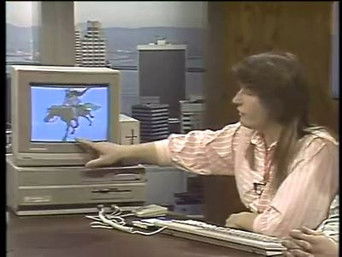
The New Amigas
Episode number: 13
Overview: Before there was a Macintosh, the Amiga was the computer for the creative community. This program looks at the Amiga 2000, the Amiga 500, Photon Video Cell Animator, Music X, Video Toaster, and Interceptor. Originally broadcast in 1988. http://archive.org/details/amiga_2
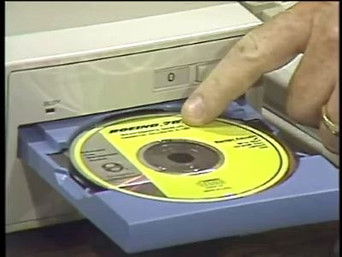
CD-ROMs (1988)
Episode number: 14
Overview: The advent of CD-ROM storage changed the way people used personal computers and opened up a whole new range of software applications. This program looks at several examples including Microsoft Bookshelf, the Boeing Maintenance Manual, Media Mixer Retrieval Engine, The Visual Dictionary, N/Hance Systems 525E WORM Optical Disk Drive, Poisondex, Electronic Arts CD-I, and Knowledge Set. Guests include George Morrow, Gary Kildall, and Paul Schindler. Originally broadcast in 1988. Copyright 1988 Stewart Cheifet Productions. https://archive.org/details/cdroms
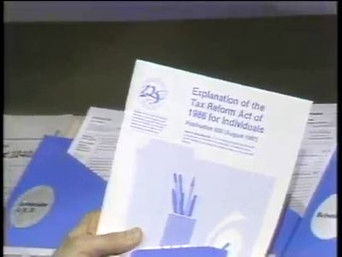
Tax Preparation Software
Episode number: 15
Overview: A review of the latest tax preparation software packages including: MacinTax and TaxView from SoftView, Lasser's Your Income Tax, Tax Preparer from HowardSoft, TurboTax from ChipSoft, Tax Partner from Best Programs, and Federal Tax Forms for the Apple II from Sky Computer Resources. Includes a visit to the IRS center in Fresno, California. Originally broadcast in 1988. https://archive.org/details/taxpreparati
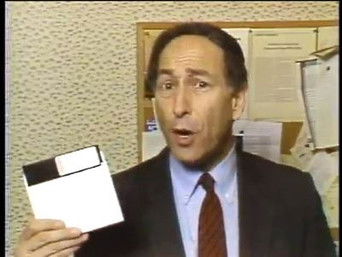
Shareware
Episode number: 16
Overview: When the personal computer software industry was born in the mid 1980's, it was assumed that computer programs would be sold like books or records. But software was different and some innovative programmers started inviting users to try their software for free. This started the battle between open source software and proprietary software. This program examines the early phenomenon of shareware and freeware. Guests include Jim Button, founder of ButtonWare; Rusel DeMaria, author of Public Domain Software; Raines Cohen, Sysop of the BMUG BBS, Stephen Howard, BMUG librarian; and Vernon Buerg, operator of the Shareware BBS. Co-host is Gary Kildall. Shareware programs demonstrated include PC-File, ProComm, AutoMenu, Artisto, Stuff-It, Hyper-Zero, and PC-Write. Includes a visit to PC-SIG, at the time the world's largest mail order house for shareware. Originally broadcast in 1988. Copyright Stewart Cheifet Productions 1988.
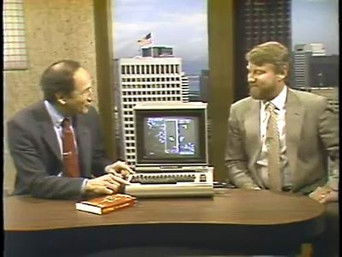
The Commodore 64
Episode number: 17
Overview: The Commodore 64 was the first computer for many families. This program looks at what you can do with the famous C-64. Demonstrations include The Wine Steward, Skate or Die, Strike Fleet, the Koala Pad, Master Composer, Tetris, and Berkeley Software's GEOS. Includes a visit to a Commodore Owners Users Group meeting and an interview with Max Toy President of Commodore. http://archive.org/details/CC517_commodore_64
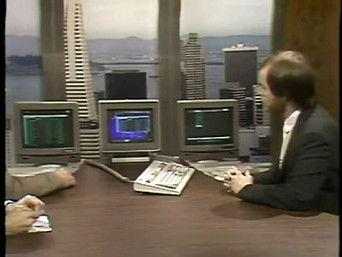
Multitasking Operating Systems
Episode number: 18
Overview: As operating systems grew more robust, one of the key new features was the ability to multitask, run several applications at the same time. This program looks at some new approaches including Concurrent DOS from Digital Research, Windows 386 from Microsoft, IBM's OS/2, Apple's A/UX, and Tandy's Xenix. Guests include Lee Reiswig, Director of the IBM Austin Lab and Gary Kildall of Digital Research. Originally broadcast in 1988. http://archive.org/details/CC518_multitasking
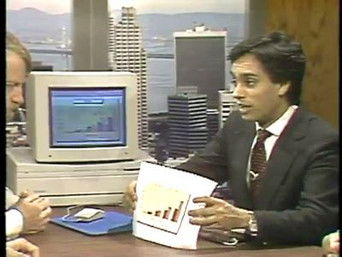
Business Graphics: Part 1 - Mac
Episode number: 19
Overview: A look at how computers are now being used as graphics tools by business. Demonstrations include MacDraw II from Claris, Microsoft's Excel, Cricket Presents from Cricket Software, Adobe Illustrator, and ImageMaker. http://www.archive.org/details/CC519_business_graphics_1
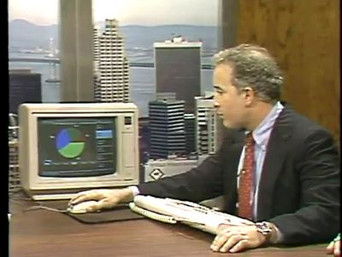
Business Graphics: Part 2 - PC
Episode number: 20
Overview: A review of business graphics products in the IBM compatible world. Products demonstrated include Energraphics, KaleidoView, Draw Applause, Freelance Plus, Harvard Graphics, GEM Graph, Presentation Team, Cubicomp, and Zenographics. https://archive.org/details/CC520_business_graphics_2
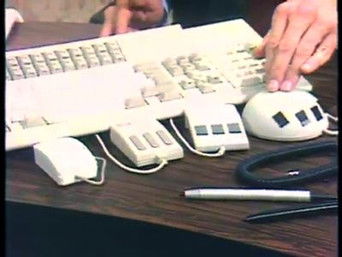
Input Devices
Episode number: 21
Overview: How do you communicate with your computer? This program looks at various input devices for telling your computer what you want it to do. Demonstrations include various mice from Microsoft, Logitech, Multimouse, and MSC, new keyboards from Apricot and Honeywell, the L-PC Lite Pen, a bar code reader, Felix for the Macintosh, the Keytronic Touchpad keyboard, the FastTrap trackball, the cordless Manager Mouse, the Elographics touch screen, and NestorWriter. Originally broadcast in 1988. https://archive.org/details/CC521_input_devices

Computers and Politics (1988)
Episode number: 22
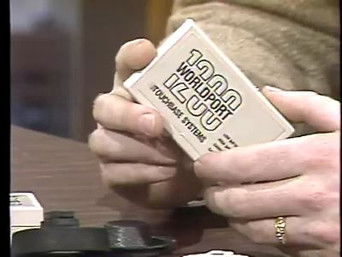
Laptop Peripherals
Episode number: 23
Overview: So you've bought your laptop, but that's only the beginning. What else do you need to become the complete road warrior? This program looks at several add-on options including Lap Link and Battery Watch from Traveling Software, back up batteries and chargers. https://archive.org/details/CC523_laptop_peripherals
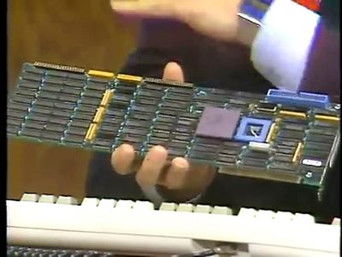
Add-On Boards & Cards
Episode number: 24
Overview: In the early days of PCs, you had to know how to open up the box and add the functionality you really wanted when you bought the computer. This program looks at some of the upgrade options including AST's Rampage 286 board, Paradise Systems' VGA Plus Graphics card, IBM's Inboard/386, and Quadram's JT Fax board, and the TV Producer board for the Macintosh II. http://www.archive.org/details/CC524_add-on_boards
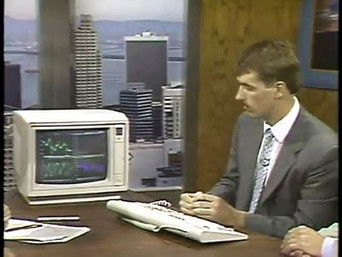
Investment Software
Episode number: 25
Overview: Personal computers level the playing field for individual investors, giving them access to research data that in the past was only available to large money managers. This program looks at several investment applications including The Fundamental Investor, Value Screen Plus, Metastock Professional, CompuTrac, the Quotrek FM receiver, Dow Jones News Retrieval Service, The Professional Portfolio, and Pro Plus Software's Wall Street Investor. https://archive.org/details/CC525_investment_software
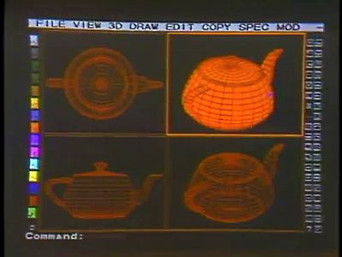
Personal CAD Software
Episode number: 26
Overview: Computer Aided Design (CAD) programs are used by engineers and architects, but new simplified CAD programs have come out for personal computers that let individual consumers use the power of CAD software.